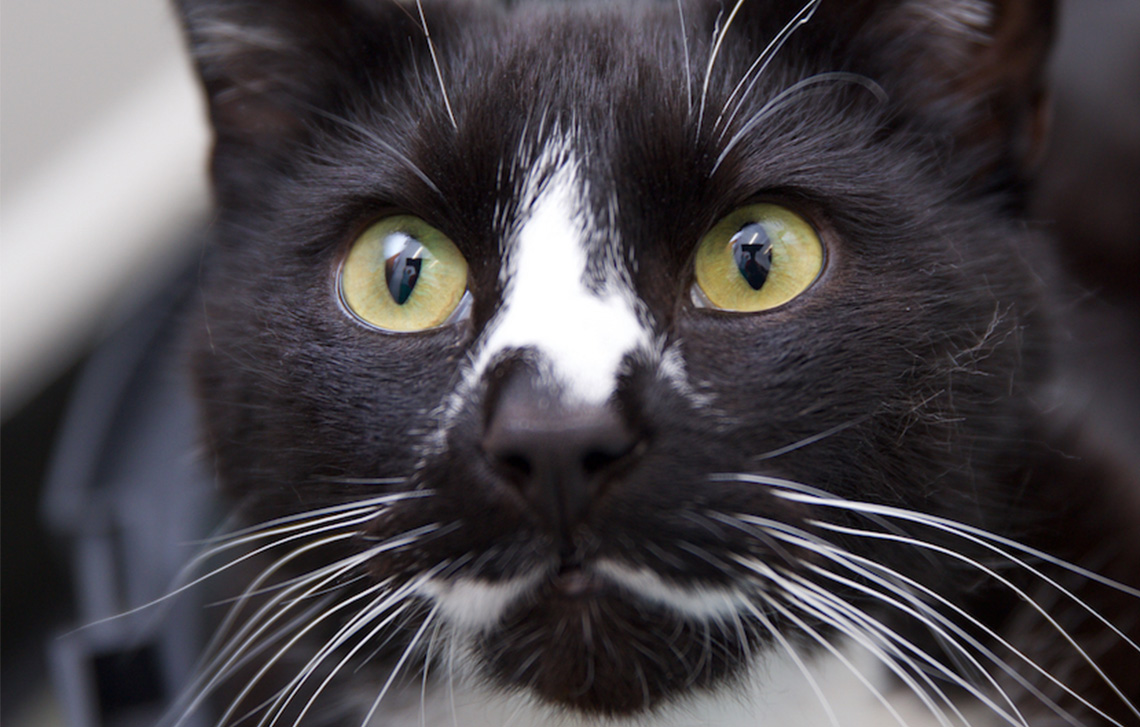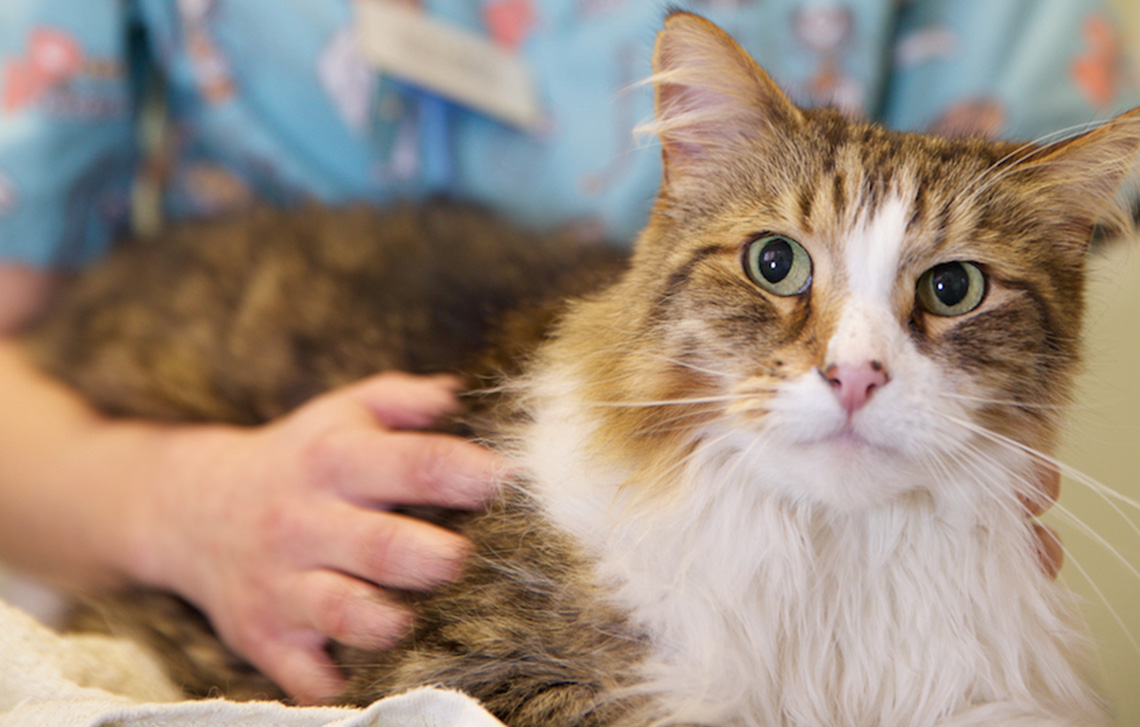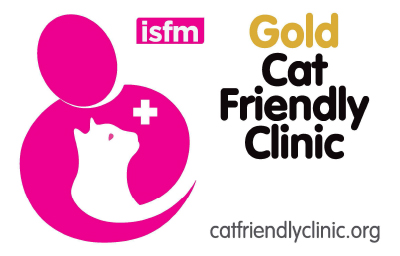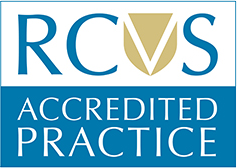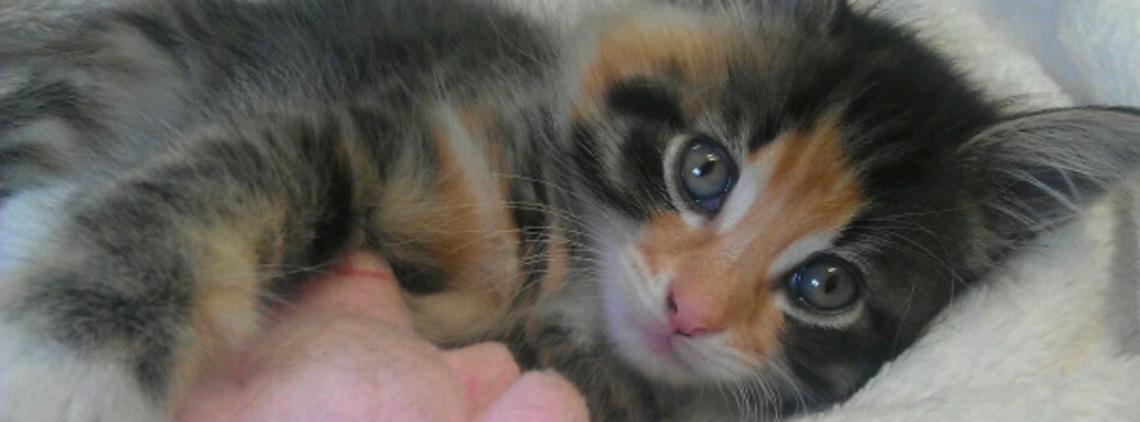
Nursing Assistant Lucy has put together a life stage guide for kittens from birth until 6 months of age to give you an idea of their development into a cat. As a kitten, this is the main growth period so it is important to feed a good quality, balanced diet to help with growing and… Read more »
Nursing Assistant Lucy has put together a life stage guide for kittens from birth until 6 months of age to give you an idea of their development into a cat.
As a kitten, this is the main growth period so it is important to feed a good quality, balanced diet to help with growing and strengthening of bones/ muscles – little and often feeding is recommended.
We generally class a kitten as a kitten until it reaches 6 months old as at this point they are known as juniors. There are significant changes that occur within this short period of time and below there is detailed information about each stage of being a kitten:
- 0-2 weeks = Neonatal
During week two, the kitten’s eyes will begin to open and then will be completely open by the end of this week but their vision may be blurry to begin with. The kitten’s eyes will begin blue for several weeks. They will also begin to learn to orient toward sound.
Separation from their mother and littermates at this point can lead to poor learning skills and aggression as they are taught play, bite inhibition and interaction with people and other pets. The queen, their mother, will stimulate them to urinate and defecate. She will also keep them warm as they will not be able to regulate their body temperature.
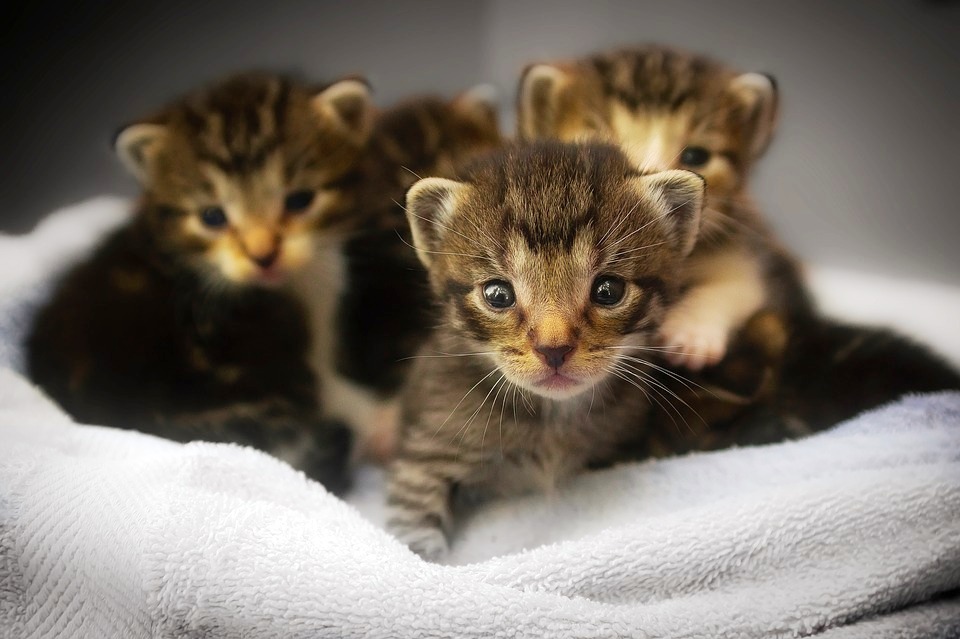
- 2-7 weeks = Socialization
By the third week smell is well-developed and they can see well enough to find their mother. By the fifth week sight is fully developed and they can run, place their feet precisely, avoid obstacles, stalk and pounce, and catch “prey” with their eyes. They start to interact with their littermates, they can walk fairly well, and their teeth are starting to erupt. This is the time of which the baby teeth (x24) are replaced with the adult teeth (x30).
The weaning process can begin around five weeks of age and here they start to groom themselves and others.
- 7-14 weeks = Most active play period
Most learning is by observation, preferably from their mother. Social and object play increases their physical coordination and social skills. Social play is very common at this stage and includes belly-ups, hugging, ambushing and licking. The litter mates and their mother will teach them how to play and will teach them when to stop!
Object play includes scooping, tossing, pawing, mouthing and holding. Object play becomes prevalent and is the most common type of play at this stage.
Kittens should have started/received their primary vaccination course as we recommend these at 8 weeks and 12 weeks of age.
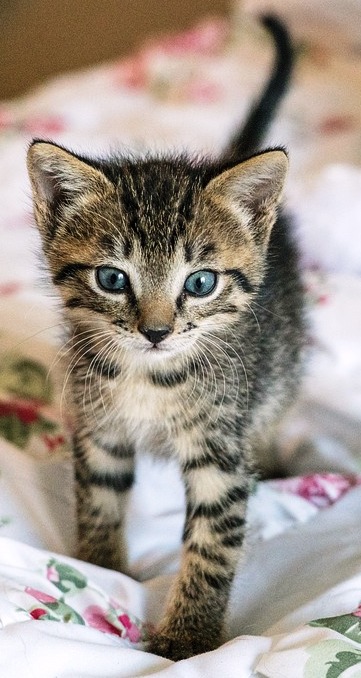
- 3 – 6 months = sexual maturity
We recommend neutering between 4-6months, before signs of sexual maturity but most often we try to aim for the earlier age of 4 months. Kittens at this stage may be reaching sexual maturity so neutering and microchipping is very important, especially if there are entire male and females in the same household.
Sometimes they can act aggressive and show frustration behaviours whilst growing up at this stage. Often kittens will spend most of their time sleeping, especially very young kittens. As they get nearer to 5/6 months they are usually becoming more energetic and adventurous. They also start becoming used to routine and will favour these routines more as they age. Kittens from the same litter will often enjoy each other’s company and will play and interact regularly.
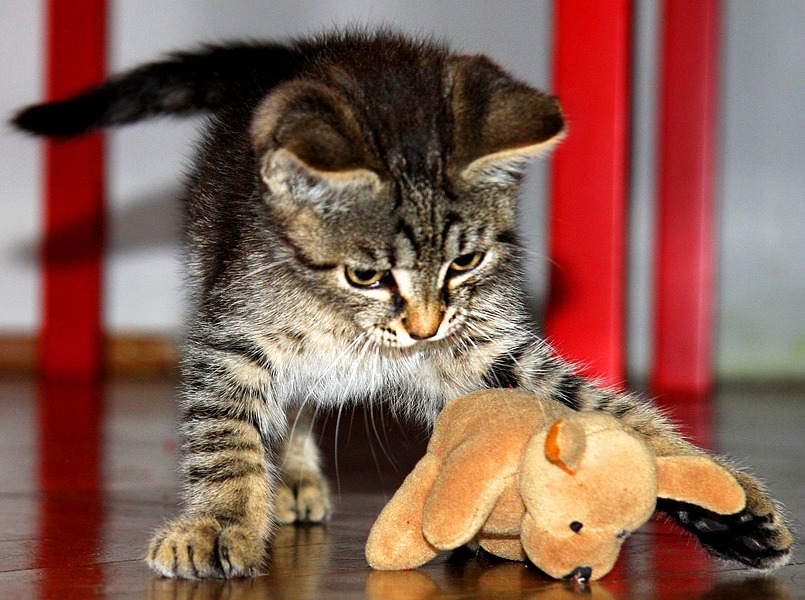
If would like any further advice on anything relating to kittens, please don’t hesitate to contact us at the clinic as we are more than happy to help. You can also find our guide to getting a new kitten here.

